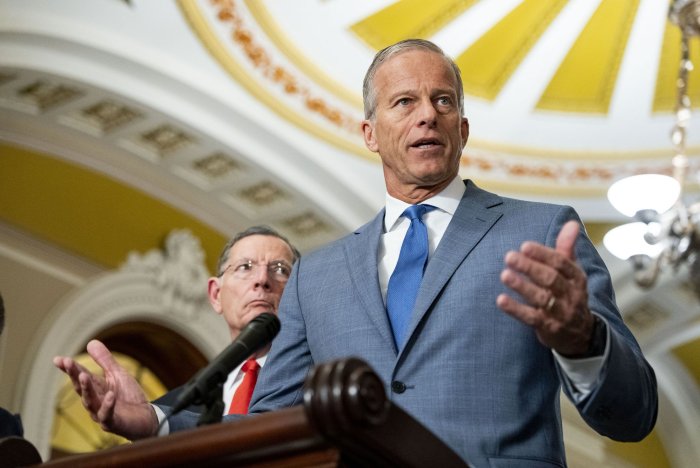Kamala Harris endorses Rep. Jasmine Crockett in Texas Senate Democratic primary
Feb. 27 (UPI) — Former Vice President Kamala Harris has endorsed U.S. Rep. Jasmine Crockett, D.-Texas, in the Texas Democratic primary for the U.S. Senate.
Harris recorded a robocall for Crockett in the race, which has the Texas representative facing off against Texas State Rep. James Talerico for the Democratic nomination in the race this fall Republican Sen. John Cornyn‘s seat, The Texas Tribune reported.
Cornyn, who has been in the Senate since 2002, is running for re-election but has to win a Republican primary against Texas Attorney General Ken Paxton and Rep. Wesley Hunt.
“Texas has the chance to send a fighter like Jasmine Crockett to the United States Senate,” Harris said in the robocall, which was first reported by the Tribune. “Jasmine has the experience and record to hold Donald Trump and his billionaire cronies accountable.”
Crockett launched her campaign for Senate on Dec. 8 and will face off against Talarico in the March 3 primary.
She launched the campaign the same day that Colin Allred, a potential primary opponent, dropped out because he felt that “a bruising Senate Democratic primary and runoff would prevent the Democratic party from going into this critical election unified” — specifically citing Crockett’s entry into the race.
Crockett also has been endorsed by Maryland Sen. Angela Alsobrooks and California Rep. Ro Khanna, according to The New York Times.
Tuesday’s primary winner will face Cornyn, Paxton or Hunt, with the election moving to a runoff in May if none of the candidates receive more than half the votes.
President Donald Trump, a Republican, has not endorsed a Republican in the race.

